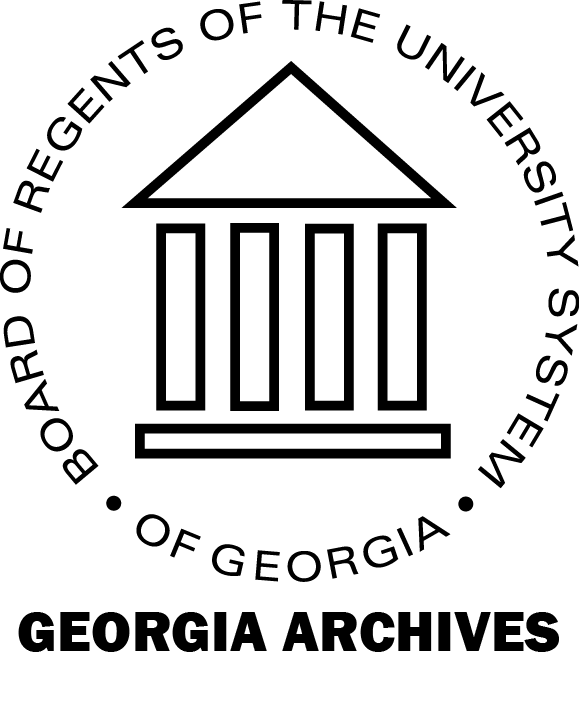Media release from the Georgia Archives:
The Georgia Archives is proud to announce its inaugural American Indian Heritage Symposium, scheduled for November 8-9, 2024. This significant event, sponsored by the Georgia Archives, Friends of Georgia Archives and History (FOGAH), and supported by a generous grant from the Clayton County Tourism Authority, will bring together expert speakers from various fields to explore a wide array of topics, including history, preservation, and genealogy. The symposium promises to be an enriching experience for anyone interested in the cultural heritage and history of American Indians in Georgia. The symposium is free and open to the public, with no registration required. It will take place in person at the Georgia Archives, located at 5800 Jonesboro Road, Morrow, GA 30252.
Day 1 – Friday, November 8, 2024
12 pm – 1 pm (November Lunch & Learn)
Session 1 – “The Power of Place” by W. Jeff Bishop, director of the Funk Heritage Center and Bennett History Museum, featuring Simone Cramer Thorne and Ariana Persico This special Lunch & Learn presentation will serve as the keynote address for the Georgia Archives’ inaugural American Indian Heritage Symposium. Mr. Bishop, along with Simone Cramer Thorne and Ariana Persico, will explore Northwest Georgia as a key region in the history of the Cherokees and other Indigenous peoples. They will highlight the Funk Heritage Center’s efforts to build strong partnerships with tribal communities and enhance the interpretation of their history in the area. Additionally, their presentation will address the Native American Graves Protection and Repatriation Act (NAGPRA) and its impact on Georgia museums, while emphasizing the deep, enduring connections Indigenous communities have to the land.
1:30 pm – 2:30 pm
Session 2 – “Saving Our History: Preserving the Georgia Trail of Tears” by Leslie Thomas, President, Georgia Chapter of the Trail of Tears Association Leslie Thomas will explore the historical significance of the Georgia Trail of Tears, one of the most tragic chapters in American history, and the ongoing efforts to preserve the remnants of this cultural legacy. Attendees will learn about the importance of preserving historical sites, documents, and stories connected to the forced removal of the Cherokee people, as well as current preservation projects. Discover how you can contribute to safeguarding this crucial part of our shared past, whether through advocacy, volunteering, or community engagement.
Day 2 – Saturday, November 9, 2024
9:30 am – 10:30 am
Session 1 – “Baskets of Corn, Personal Relationships, and Vital Intelligence: The Many Roles of Cherokee Women in the Seven Year’s War” by Jessica Wallace, Georgia College & State University Many histories of war focus on the male participants. This presentation adds in the roles that Cherokee women played in the Seven Years’ War of 1754-1763. In some ways, Cherokee women’s lives continued in their usual work, from growing corn and other crops, feeding and caring for their families, and providing hospitality to visitors. However, during the Seven Years’ War, Cherokee women combined these daily activities with new opportunities created by the increased presence of colonial and British soldiers and colonists in Cherokee territory. These new roles included selling corn to soldiers, cultivating personal and romantic relationships with soldiers, and providing military intelligence to British and colonial officials. Through these and other new activities, eighteenth century Cherokee women were integrally involved in their communities’ experiences of warfare.
10:45 am – 11:45 am
Session 2 – “Where are your Women? The role of women among the Southeastern Indians” by Michael Morris, College of Coastal Georgia From Pocahontas to Mary Musgrove and Nancy Ward, Indigenous women of the South sought to exercise their traditional gender roles in the face of settler colonialism. When all-male diplomatic parties arrived in Native communities, Indigenous women expected to engage in dialogue with women from the other side. If we examine the evidence carefully, we see that Native women were often diplomats, translators, and patrons, helping colonies secure food and avoid tribal conflicts. Although there were no such things as “Indian princesses,” there were real-life women who actively worked on behalf of both their own communities and their non-Native neighbors.
1:00 pm – 2:00 pm
Session 3 – “Native American Language Revitalization and Cultural Sovereignty” by Heidi Altman, Georgia Southern University Language is a central feature of cultural sovereignty. During the 19th and 20th centuries, indigenous languages were systematically targeted for elimination as the federal government sought to forcibly assimilate Native American communities into American education and economic systems. Today indigenous language revitalization movements have become well-established among tribal nations across the country and in indigenous communities around the world. This presentation covers the history of language subjugation, and how the revitalization of Native American languages figures into the larger processes of cultural heritage renaissance and economic development in tribal nations.
2:15 pm – 3:15 pm
Session 4 – “Tracing Heritage: Navigating the Various Rolls Used in Native American Genealogy” by Linda Debe, The Sleepless Genealogist Linda Debe will explore the essential Native American rolls used in genealogical research. She will cover the historical context, types, and contents of the rolls, including tribal rolls, federal census records, and others that track membership, lineage, and property ownership. These records are invaluable for tracing Native American ancestry, confirming tribal affiliation, and reconnecting family ties. She will also discuss key resources for accessing these rolls, such as the National Archives, tribal archives, and online databases.
##
Lunch will not be provided at this event. Attendees are encouraged to bring their own lunch or to dine out at any of Morrow’s nearby restaurant locations. (A list will be provided on the day of the event.)
##
The Georgia Archives is a unit of the Board of Regents of the University System of Georgia and identifies, collects, manages, preserves, provides access to, and publicizes records and information of Georgia and its people and assists state and local government agencies with their records management. This work is done within the framework of the USG’s mission to create a more highly educated Georgia.
